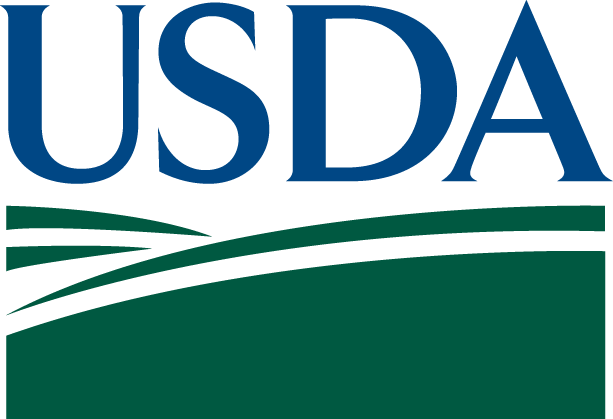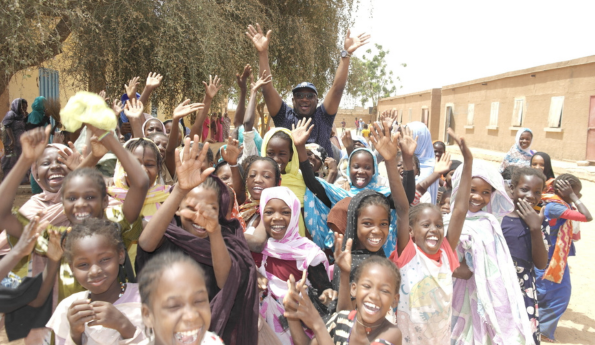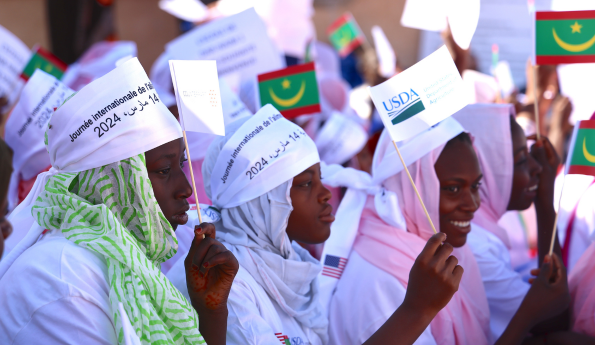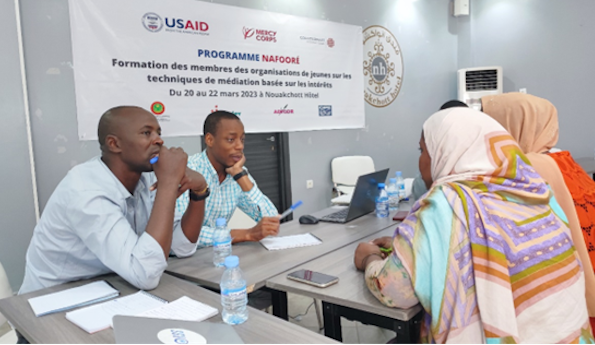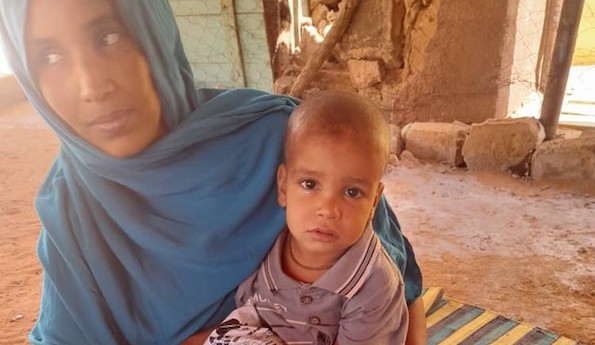The Future is Ours and Bridging the Future
McGovern-Dole International Food for Education and Child Nutrition Program
Children don’t learn on empty stomachs
In Mauritania, 75 percent of people depend on subsistence farming and pastoralism. In the past year drought, exacerbated by climate change, has resulted in chronic food deficit. Over the past five years, food insecurity rates have hovered between 25-30 percent in the lean season. Food inaccessibility impacts the health and education of young children hindering their potential for growth, prosperity, and success. Such challenges of nutrition, health, and literacy are closely connected, and drive Counterpart’s USDA McGovern-Dole Food for Education and Child Nutrition Programs – The Future is Ours and Bridging the Future.
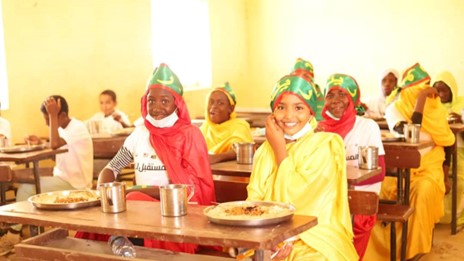
Students in Mauritania enjoy a nutritious meal.
Providing nutritious meals increases livelihoods
Counterpart International and a team of regional and local partners (ARED, EcoDev, and ONG Actions) will implement the USDA-funded five-year programs (2019 – 2027) – The Future is Ours and Bridging the Future – to assist the government of Mauritania to reduce hunger, improve health, and strengthen the primary education system. Implemented in Brakna and Gorgol, with growing activities in Tagant, the program will serve 320 schools through integrated activities aligned with national education and health policies. Counterpart will work with schools, parents’ associations, community members, NGOs, and government agencies to: Improve student attendance rates by providing nutritious daily school meals across 320 targeted primary schools.
• Improve student attendance rates by providing nutritious daily school meals across 320 targeted primary schools
• Enhance health and dietary practices by providing access to deworming medications and increasing knowledge of nutrition, and safe food preparation and storage practices
• Improve school infrastructure and increase access to clean water and sanitation by building storerooms, latrines, and water station systems
• Improve the literacy of school age children through the implementation of a multi-layered pilot program
• Improve school governance through strengthened community participation
• Increase capacity of national stakeholders to ameliorate the quality of the primary school system
• Strengthen the capacity of local and national stakeholders to lead and maintain school feeding programs
Millions of meals fill bellies, nourish minds
While implementing activities in the sectors of education, nutrition, health, water and sanitation, Counterpart and local partners plan to meet the following targets over the life of the project:
- Distribute over 60 million meals to 139,078 of students
- Provide 239 schools with improved water sources and sanitation facilities, and stoves
- Train 5,887 individuals in safe food preparation and storage
- Provide deworming medication to 129,085 school children
- Train 4,297 individuals in child health and nutrition
- Reach 1,142 pregnant women and 3,427 children under five with nutrition-specific interventions
- Train 576 teachers, school administrators, and government officials in management and literacy



